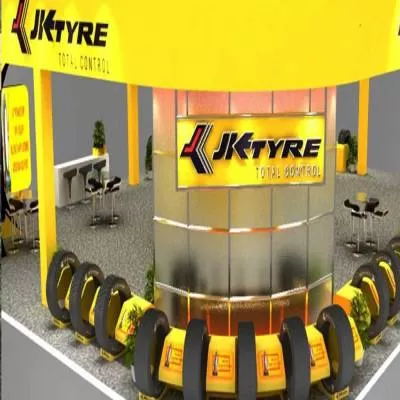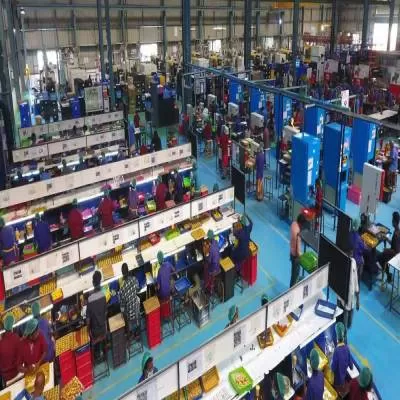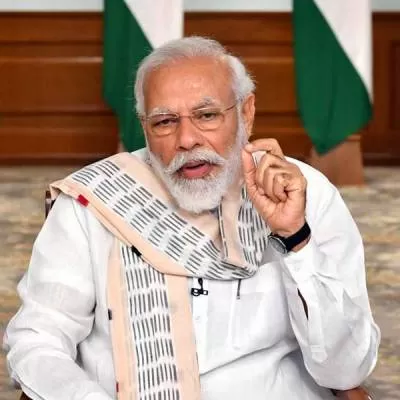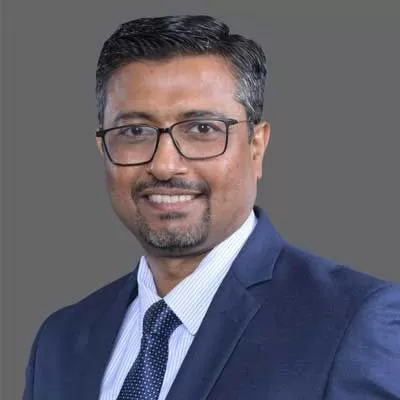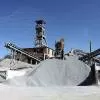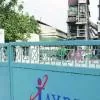- Home
- Infrastructure Urban
- ECONOMY & POLICY
- We expect the market to grow rapidly in the next 10 years
We expect the market to grow rapidly in the next 10 years
A leading global manufacturer of agricultural and construction equipment , Case New Holland (CNH) has 11,300 dealers in approximately 170 countries, with 12 per cent of its sales generated in the Asia Pacific region. DK Narang, Managing Director of Case New Holland Construction Equipment India Pvt Ltd (known as Case India ) and fully owned subsidiary of CNH Global, elucidates on the company's operations, its future plans and the Indian construction equipment industry.
How do you assess the current market scenario for construction equipment and its growth potential in the coming years?
The growth of the industry largely depends on project execution in the infrastructure sector. The speed at which these projects are executed also decides the growth pace of equipment suppliers. Currently, issues such as land acquisition, hardening interest rates and other approval delays have affected this pace. Rising input costs, increase in fuel prices and depreciation of the rupee have also affected the market. However, as the government has targeted $1 trillion investment in the infrastructure sector, the medium term outlook for the Indian construction equipment industry remains bullish.
How do you rate your performance in the backhoe and vibratory compactors market and what are your future strategies?
The vibratory compactors market is expected to be stagnant at about 2,260 units this year, while the loader backhoe market is likely to witness a drop of 5 per cent during 2012.
What has been the company's strategy in the current scenario?
The slowdown period is short term as the government is re-emphasising and providing the impetus to infrastructure projects through various policy measures. However, we need to provide extra support to the existing equipment fleet and strengthen our network to provide best value to our customers.
How does the company address issues like devaluation of rupee, funding and the ever-increasing cost of input materials?
To maintain our cost competitiveness amongst tough competition, we minimised our import content to counter the effects of rupee devaluation thereby shielding ourselves to a large extent from currency fluctuations. We also undertook several cost optimisation projects to keep our costs under check.
What has been your focus in providing value addition, especially in terms of service support?
We have a well established dealer network. We also leverage on our global experiences to ensure continuous improvement in services.
Elaborate on your mission to integrate the plant with global industrial footprint.
CNH has always laid a strong emphasis on utilising its manufacturing strength as a competitive edge in various markets that it operates in. Similarly, New Holland is integrating its Pithampur plant with a global industrial footprint through its worldwide expertise in improving processes, quality, reliability and operating efficiencies.
We have a dedicated team of technical trainers with an exclusive training and development centre at our Pithampur Plant.
How do you look at the growth potential in another three years and how competent is Case to meet the challenges?
With strong fundamentals of the Indian market and the government's focus on infrastructure, housing and power projects, we expect the market to grow at a healthy pace in the next 5 to 10 years. Hence, we are investing in all areas of operations to provide best value to our customers.
(Communication by the management of the company)
DK Narang, Managing Director, Case India A leading global manufacturer of agricultural and construction equipment , Case New Holland (CNH) has 11,300 dealers in approximately 170 countries, with 12 per cent of its sales generated in the Asia Pacific region. DK Narang, Managing Director of Case New Holland Construction Equipment India Pvt Ltd (known as Case India ) and fully owned subsidiary of CNH Global, elucidates on the company's operations, its future plans and the Indian construction equipment industry. How do you assess the current market scenario for construction equipment and its growth potential in the coming years? The growth of the industry largely depends on project execution in the infrastructure sector. The speed at which these projects are executed also decides the growth pace of equipment suppliers. Currently, issues such as land acquisition, hardening interest rates and other approval delays have affected this pace. Rising input costs, increase in fuel prices and depreciation of the rupee have also affected the market. However, as the government has targeted $1 trillion investment in the infrastructure sector, the medium term outlook for the Indian construction equipment industry remains bullish. How do you rate your performance in the backhoe and vibratory compactors market and what are your future strategies? The vibratory compactors market is expected to be stagnant at about 2,260 units this year, while the loader backhoe market is likely to witness a drop of 5 per cent during 2012. What has been the company's strategy in the current scenario? The slowdown period is short term as the government is re-emphasising and providing the impetus to infrastructure projects through various policy measures. However, we need to provide extra support to the existing equipment fleet and strengthen our network to provide best value to our customers. How does the company address issues like devaluation of rupee, funding and the ever-increasing cost of input materials? To maintain our cost competitiveness amongst tough competition, we minimised our import content to counter the effects of rupee devaluation thereby shielding ourselves to a large extent from currency fluctuations. We also undertook several cost optimisation projects to keep our costs under check. What has been your focus in providing value addition, especially in terms of service support? We have a well established dealer network. We also leverage on our global experiences to ensure continuous improvement in services. Elaborate on your mission to integrate the plant with global industrial footprint. CNH has always laid a strong emphasis on utilising its manufacturing strength as a competitive edge in various markets that it operates in. Similarly, New Holland is integrating its Pithampur plant with a global industrial footprint through its worldwide expertise in improving processes, quality, reliability and operating efficiencies. We have a dedicated team of technical trainers with an exclusive training and development centre at our Pithampur Plant. How do you look at the growth potential in another three years and how competent is Case to meet the challenges? With strong fundamentals of the Indian market and the government's focus on infrastructure, housing and power projects, we expect the market to grow at a healthy pace in the next 5 to 10 years. Hence, we are investing in all areas of operations to provide best value to our customers. (Communication by the management of the company)



